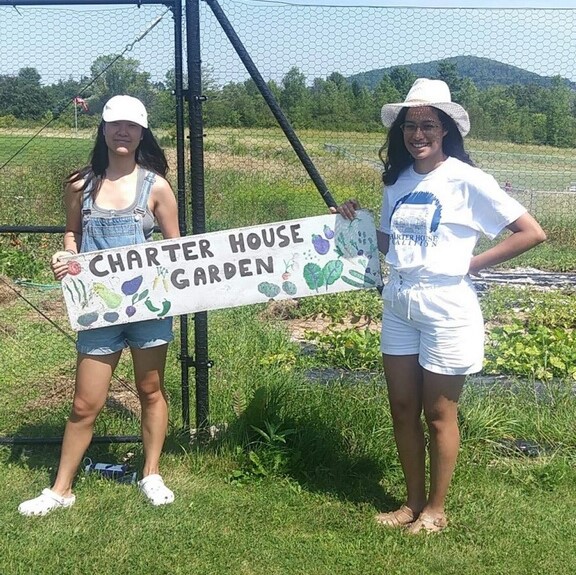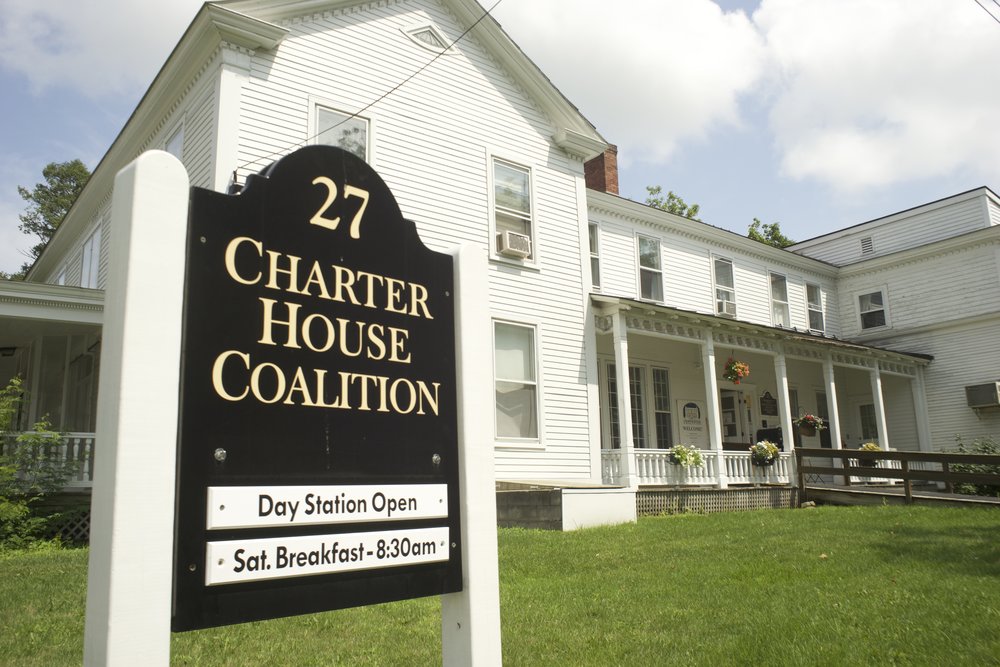Middlebury Privilege & Poverty interns stay the summer in Vermont, engage with issues of poverty throughout Addison County.
This is the first in a series highlighting the work of our CCE Privilege & Poverty Interns, who are working in organizations, nationally and locally, that intentionally engage in issues of poverty. This week I sat down with Cynthia Ramos ’21 (intern) and Samantha Kachmar (co-director), of Charter House in order to enrich my own reflection about what it’s like working around poverty.
Cynthia Ramos ’21 is one of several Middlebury students who have been thrown into the daily operations of various social service organizations throughout Addison County this summer. From homelessness, to access to nutritional food, to advocating for women’s and migrants’ rights, Privilege & Poverty Interns are engaging with manifestations of poverty on a daily basis, and gathering weekly to reflect on and discuss their experiences.
Cynthia is working at Charter House this summer, a non-profit, volunteer based organization that provides basic necessities like food and shelter. Though her job description might sound simple at first – cooking and cleaning, checking in residents – it has quickly become much more than what it seemed at the beginning.

“This job has been both easier and harder than I expected. I don’t have to know calculus to do it, but I have to have endless willingness to always do more, take on more. I have to be generous with not only my time, but my emotional availability…it’s exhausting, but not in a bad way. I feel more fulfilled now than I do during the school year,” says Cynthia.

Exhausting, yes. Worth it? Definitely.
Samantha Kachmar, Co-Director of the Charter House, agrees that the experiential learning that Privilege & Poverty Interns are gaining is unique in its own right – and difficult to digest at times. “It gives [students] a chance to really see it – in its reality. And it’s not always a pretty reality. Sometimes learning and knowing something from material you’ve read or watched is much different than when you’re faced with that reality.”
“It’s exhausting, but not in a bad way. I feel more fulfilled now than I do during the school year.” – Cynthia Ramos
There’s a quote that hangs, pinterest style, next to the front door of my parent’s house that says “Be the change you wish to see in the world”.
That’s about as corny as they come (right behind “Live, Laugh, Love”, “Family is FOREVER” and “You can find me at the beach”). Nevertheless, I have always felt unduly motivated by its message. This summer as a Privilege & Poverty Intern through the CCE myself, I am beginning to understand not only the value of living into that quote, but the value of the home that holds that sign up.
At times the John Graham Shelter in Vergennes, where I have been placed, seems not twelve but twelve thousand miles away from the housing, dining, and education that I often take for granted in the middle of a semester at Middlebury College. But perhaps the most valuable lesson I’m beginning to learn is that these “different worlds” are not so different; all it takes is intentionality and effort to connect the two.
That connection, perhaps tragically for the more bookish of us (myself included), takes place beyond the essays we read, the money we donate or the “likes” we give on Facebook. Ultimately, however, that connection gives us the chance to discover universal aspects of human nature.
“It allows people to see that though we come from different backgrounds and different walks of life, we have a lot in common. And everyone has the same desire for a stable life, and just different ways to go about it, different resources to attain it,” says Kachmar.
As my first full year of living in Middlebury draws to a close, I have become more and more conscious of the divisions between college and community, wealthy and poor here in Addison County. Whether you are from “up the hill” or “down the hill”, or whether you shop at the Co-op or Hannafords, has tangible consequences on how you perceive Middlebury – and how you are perceived by others. Undoubtedly, there are some parallel realities of experience here, just like in many other places.
But (as I’m beginning to see, thanks to my work this summer) more often than not the effort it takes to bridge these divisions is smaller than we think. And I’m grateful to be given the chance to try.

Hi Connor! Thanks for thoughtfully writing about your experience & also Cynthia’s. I really appreciate being able to hear about people’s experiences and takeaways, and I’m sure other’s reading this feel the same!
Luna from Charter House Student Org / CCE